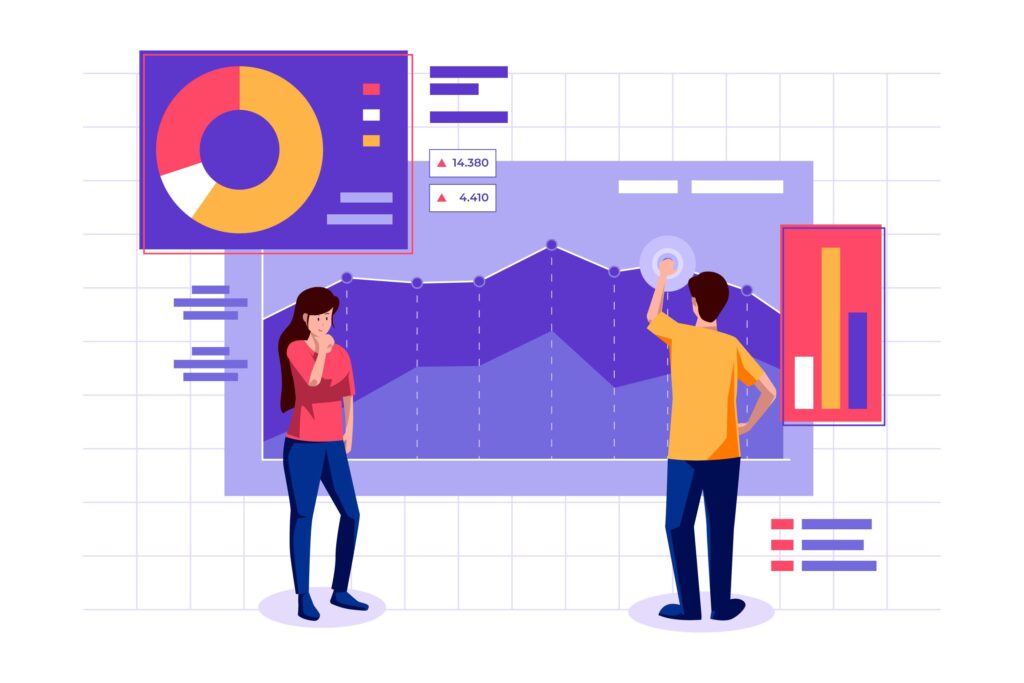The Role of Technology in Sales Outsourcing
Technology has transformed the way sales teams operate, making processes faster, data more accessible, and customer interactions more meaningful. In sales outsourcing, technology plays an even more critical role, allowing outsourced teams to seamlessly integrate with in-house departments, track performance, and drive efficiency. From automation to analytics, the right technology can be a game-changer, helping outsourced sales teams meet goals, deliver insights, and achieve measurable results. Here’s a closer look at the essential role technology plays in modern sales outsourcing.
1. Seamless Integration and Collaboration
For outsourcing to succeed, collaboration between internal and external teams is essential. Technology bridges the gap, enabling seamless communication, information sharing, and collaboration across locations and time zones.
- Customer Relationship Management (CRM) Systems: CRM systems like Salesforce, HubSpot, or Zoho CRM allow in-house and outsourced teams to share customer data, track interactions, and view the entire sales history. This transparency ensures everyone stays on the same page, making collaboration easier.
- Communication Platforms: Tools like Slack, Microsoft Teams, and Zoom make it easy for in-house and outsourced sales teams to communicate in real-time. Whether it’s a quick update, team meeting, or brainstorming session, communication platforms keep teams connected.
- Project Management Software: Platforms such as Trello, Asana, or Monday help manage tasks, timelines, and deliverables. By assigning tasks, setting deadlines, and tracking progress, project management tools help keep everyone aligned and accountable.

Through CRM, communication, and project management tools, outsourced teams can integrate with your business seamlessly, ensuring alignment with your goals and delivering a cohesive customer experience.
2. Automation for Increased Efficiency
Sales outsourcing is all about streamlining processes and increasing efficiency, and automation is key to achieving these goals. Automation tools handle repetitive tasks, allowing outsourced sales teams to focus on higher-value activities, like nurturing relationships and closing deals.
- Automated Lead Scoring and Qualification: Automation tools like Marketo and Pardot score and qualify leads based on criteria such as engagement, demographic data, and behaviour, ensuring that only high-potential leads are passed to sales reps.
- Email Automation and Follow-Up: Automated email sequences ensure consistent follow-up with prospects, keeping them engaged throughout the sales process without requiring manual input. Tools like ActiveCampaign and Mailchimp simplify the follow-up process.
- Task Scheduling and Reminders: Sales automation tools can handle appointment scheduling, reminders, and task notifications, helping sales reps stay organised and on top of their follow-up schedules.
By automating routine tasks, outsourced sales teams can operate more efficiently, increase productivity, and focus their efforts on high-impact activities that drive revenue.
3. Enhanced Data Analytics and Reporting
Data-driven decisions are essential in today’s sales landscape, and outsourced teams use advanced analytics to track performance, identify trends, and improve strategies. With access to real-time data, businesses and outsourced teams can monitor the effectiveness of their sales efforts and make informed adjustments.
- Sales Performance Metrics: Analytics platforms track essential metrics, such as conversion rates, average deal size, and sales cycle length. This data helps identify what’s working and where there’s room for improvement, enabling continuous optimisation.
- Customer Insights and Behavioural Data: Analytics tools like Google Analytics or Kissmetrics provide insights into customer behaviour, preferences, and buying patterns, helping outsourced teams tailor their approach to resonate with prospects.
- Forecasting and Pipeline Management: Predictive analytics tools can forecast future sales trends and help manage the sales pipeline. By anticipating demand and identifying high-potential leads, outsourced teams can optimise their resources and improve conversion rates.
With data analytics, outsourced sales teams gain visibility into their performance, allowing them to optimise their approach, tailor their messaging, and achieve better outcomes.
4. Personalisation at Scale
Personalisation is a key component of successful sales, and technology allows outsourced teams to deliver personalised experiences at scale. By leveraging data and automation, outsourced sales reps can tailor their messaging to the unique needs of each prospect, increasing engagement and improving conversion rates.
- Dynamic Email Content: Email marketing tools enable personalised content in email campaigns based on prospect data, such as their industry, role, or engagement level. This ensures each prospect receives relevant information that speaks to their unique needs.
- AI-Powered Recommendations: AI-driven tools can recommend products, services, or content based on past interactions, making personalised suggestions that resonate with individual prospects.
- Segmentation for Targeted Outreach: CRM and marketing automation tools enable segmentation based on customer demographics, behaviour, and preferences. This allows outsourced sales teams to send targeted messages to each segment, resulting in higher engagement.
By using technology to personalise interactions, outsourced sales teams create meaningful connections with prospects, fostering trust and building relationships that lead to conversions.
5. Streamlined Lead Management
Effective lead management is essential for closing deals, and technology makes it easier for outsourced teams to manage leads from initial contact to final sale. CRM systems and sales enablement platforms centralise data, making it easy to track and nurture each lead throughout the sales funnel.
- Centralised Lead Database: CRM platforms keep all lead data in one place, allowing outsourced teams to easily access and update information, track engagement, and view the lead’s journey.
- Automated Lead Nurturing: Automation tools handle lead nurturing through targeted follow-up emails and personalised content, keeping leads engaged and moving them through the funnel.
- Lead Scoring and Prioritisation: Lead scoring tools rank leads based on their likelihood to convert, allowing sales teams to prioritise high-potential prospects and focus their efforts where they’re most likely to see results.
Streamlined lead management enables outsourced sales teams to work efficiently, ensuring that no lead falls through the cracks and that prospects receive timely, relevant follow-ups.
6. Improved Customer Experience
In today’s customer-centric market, a great experience can set your brand apart. Technology enables outsourced teams to deliver consistent, high-quality interactions that enhance the customer experience and build brand loyalty.
- Customer Journey Mapping: CRM and customer journey platforms allow outsourced teams to map out and understand each stage of the customer journey, ensuring that each touchpoint adds value.
- Omni-Channel Engagement: Technology enables outsourced teams to engage with prospects across multiple channels, including email, social media, chat, and phone. This flexibility allows for a more seamless and personalised customer experience.
- Real-Time Response Capabilities: With access to AI-driven chatbots and real-time communication tools, outsourced teams can respond to customer inquiries instantly, providing the quick responses that today’s customers expect.
An improved customer experience leads to increased satisfaction, loyalty, and the likelihood of conversion, making technology a powerful asset for outsourced teams in delivering memorable interactions.
7. Enhanced Security and Data Protection
With an increase in data privacy regulations, companies need to ensure that customer data is handled responsibly. Technology plays a critical role in protecting customer information and ensuring compliance, making it possible for outsourced teams to operate securely and responsibly.
- Data Encryption and Security Protocols: CRM systems and sales platforms use encryption and secure protocols to protect customer data, ensuring that information is safely stored and shared only with authorised users.
- Compliance Management: Many sales software platforms include compliance features to help businesses adhere to regulations like GDPR, CCPA, and HIPAA. This includes managing consent, tracking data usage, and handling customer data responsibly.
- Access Control and Permissions: Advanced CRM and project management systems allow companies to control who can access certain information, helping maintain data security and confidentiality in outsourced operations.
With technology ensuring security and compliance, companies can confidently outsource sales efforts without compromising customer trust or regulatory obligations.
8. Performance Monitoring and Continuous Improvement
Technology enables ongoing monitoring and evaluation, allowing outsourced teams to track their performance and make data-driven improvements over time. By reviewing results and optimising their approach, outsourced teams can continuously improve their sales effectiveness.
- Real-Time Dashboards: CRM systems and analytics platforms provide real-time dashboards that allow both internal and outsourced teams to monitor KPIs and track sales performance.
- A/B Testing and Experimentation: Technology allows for A/B testing of sales tactics, messaging, and outreach strategies, helping outsourced teams identify what works best and refine their approach.
- Feedback Loops: Performance tracking tools and CRM systems can generate reports that provide feedback on everything from customer satisfaction to conversion rates, enabling continuous optimisation of sales processes.

Performance monitoring and improvement capabilities empower outsourced sales teams to deliver consistent results and align their efforts with your business objectives.
Conclusion: The Power of Technology in Sales Outsourcing
Technology has revolutionised the way sales outsourcing operates, making it possible for external teams to integrate seamlessly, personalise outreach, manage leads, and monitor performance with precision. By leveraging CRM systems, automation tools, data analytics, and more, outsourced sales teams can operate with efficiency and effectiveness, driving revenue and improving the customer experience.
If you’re ready to harness the power of technology in sales outsourcing, Wingmen Consulting is here to help. Our team combines advanced tools with industry expertise to create streamlined, high-impact sales solutions tailored to your business needs. Book a Free Consultation today to learn how we can support your growth through tech-enabled sales outsourcing. Schedule Your Free Consultation with Wingmen Consulting and start boosting your sales with the power of technology.
